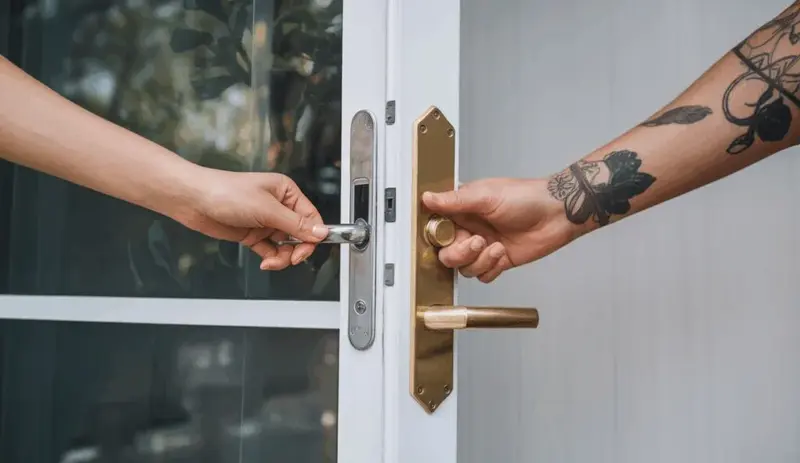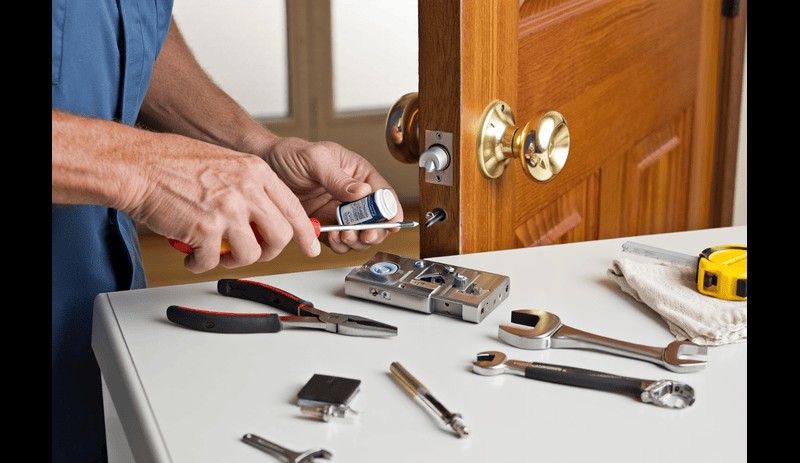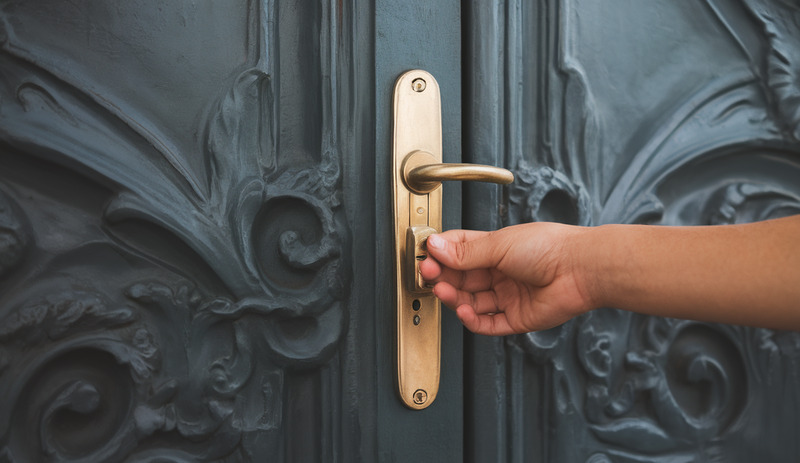
You’re standing there, key in hand, and something just doesn’t feel right. The lock seems stuck, wobbling instead of turning smoothly. Your back door typically your home’s most reliable entrance is suddenly giving you trouble.
Don’t let a faulty lock turn into a bigger headache. In this guide, we’ll break down exactly what might be causing your lock to misbehave and how you can get it fixed without breaking the bank.
Why does My Lock Feel Sticky?
Every homeowner, at some point, deals with a door that won’t turn. The feeling is tiny-annoying, and it’s usually a mix of simple things that build up over time.
First, a door frame that’s out of line can cause issues. Houses shift as they settle, and wood absorbs moisture. That swelling or warping can shove the bolt against an uneven strike plate, making it harder to move.
A second cause is a lock getting old. Inside the lock, pins and springs are meant to slide smoothly, but after years of use, they get tired. Your key then feels like it’s climbing a hill.
Finally, dirt and little bits build up inside the cylinder – dust, metal shavings, even bits of outdoor mud. Think of it like a bike chain that’s gotten gritty; the same friction slows the lock down.
Can I Fix It on my own?
Good news – many sticky locks can be tackled with easy DIY tricks. The top thing to try is a dab of graphite powder on the key. Slip the key in, turn it a few times, and let the dry powder coat the inner bits.
Rule of thumb: stay away from oil-based lubes. They tend to pull more dust in the long run. Graphite stays dry and keeps grit away.
If the lock still acts stubborn, check the hinges and strike plate. Tightening the screws on the hinges can bring the door back onto the frame. Ensure the metal plate where the bolt hits sits flush – no gaps.
A word of warning: if you keep trying without change, or feel unsure about how far to turn screws, stop. Pushing too hard can wear internal pins out faster, potentially leaving you with a lock that can’t lock.
More on this: Why Does My Lock Feel Loose and Wobbly?
When Should I Call in a Pro?
Not every lock problem is a home project. In Denton, TX, local locksmiths bring expertise beyond just opening a stuck lock. A professional can spot hidden damage that most miss and provide comprehensive solutions.
One safety tip: if your key snaps inside the lock, don’t yank it out yourself. DIY pulling can break the lock body, making it totally unusable and forcing an even more expensive repair.
What a good locksmith near me brings:
- Finds exactly what’s wrong with the lock
- Gives options that follow safety rules
- Keeps your house safe while they work
- Can install fresh hardware if needed
When security matters – especially when you’re worried about potential vulnerabilities – put the tools down and let an expert handle it.
A sticky lock may seem small but might hide bigger wear or alignment problems that could threaten your safety if ignored. Knowing why it sticks, trying sensible DIY fixes, and knowing when to call for help keeps your lock working and home secure.
A stubborn lock isn’t just annoying—it’s a potential security risk. Don’t wait until it becomes a bigger problem.



